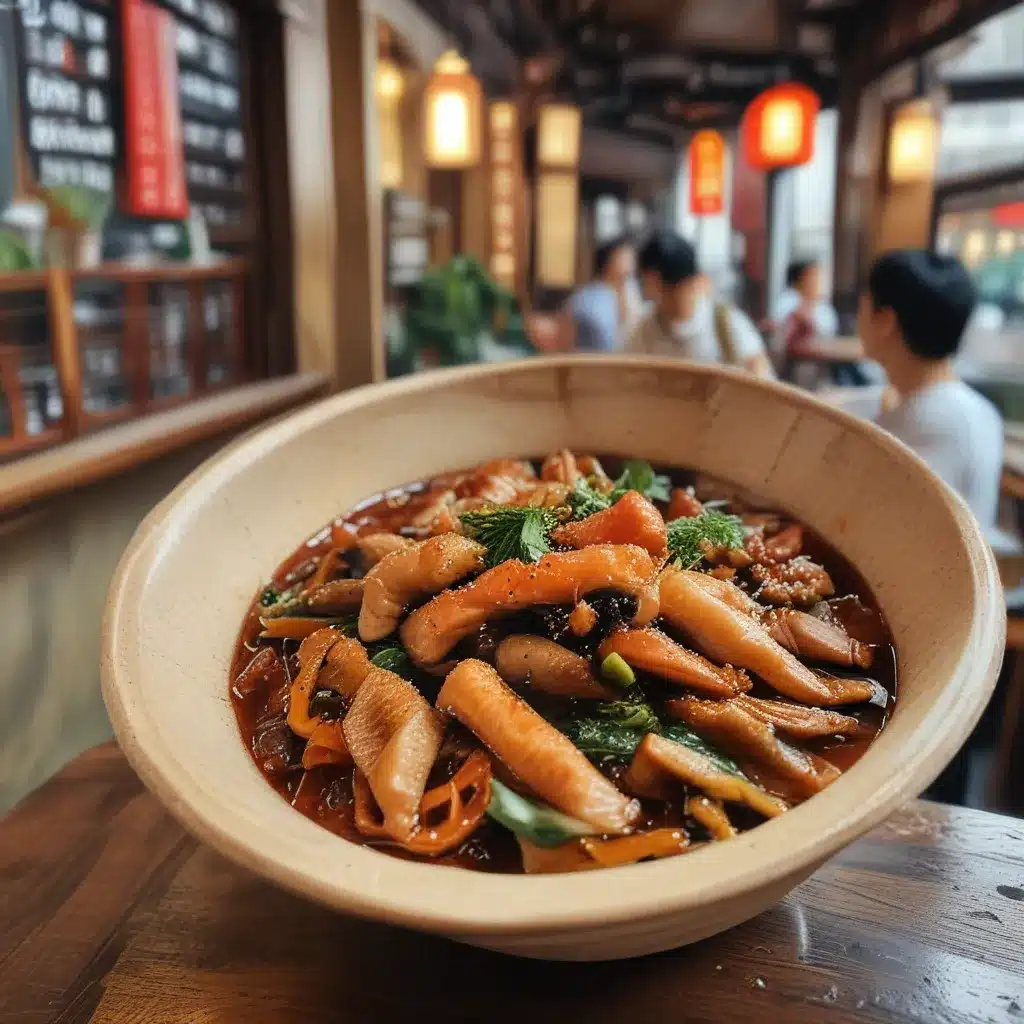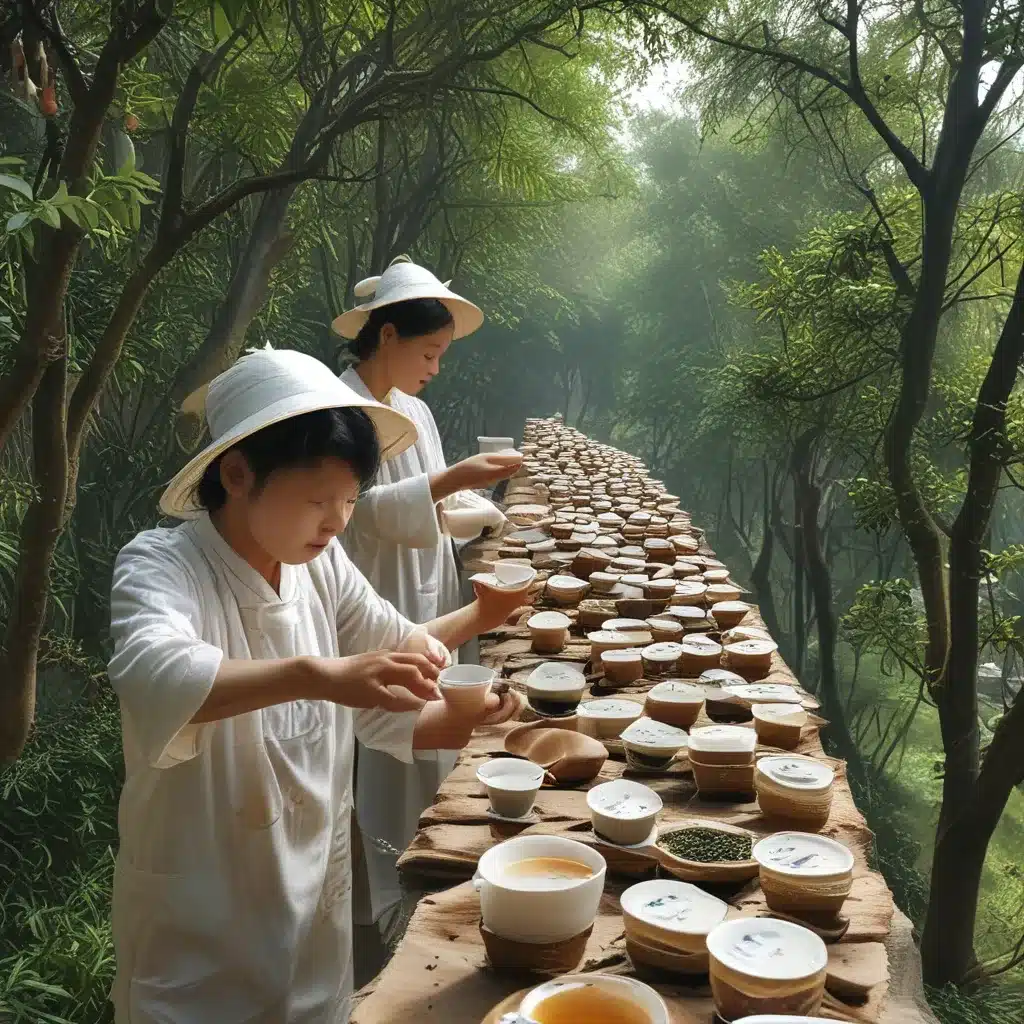
Embracing Sustainability in the World of Dumplings and Dim Sum
As a self-proclaimed foodie and avid Shanghai cuisine enthusiast, I’ve always been captivated by the rich flavors and intricate techniques that define this vibrant culinary tradition. However, in recent years, I’ve become increasingly aware of the environmental toll that our insatiable appetite for these delectable delights can take. That’s why I’m on a mission to uncover ways we can enjoy the authentic tastes of Shanghai while minimizing our ecological footprint.
One Dragon Restaurant, the premier Shanghai cuisine destination in our city, has made sustainability a core part of its ethos. Through my conversations with the passionate chefs and owners, I’ve gained a deeper appreciation for the challenges and opportunities in creating environmentally conscious Shanghai fare.
Sourcing Sustainable Ingredients
The foundation of any great Shanghai dish lies in the quality of its ingredients, and One Dragon Restaurant takes pride in meticulously sourcing from local, sustainable suppliers. As I step into the kitchen, I’m struck by the array of fresh, vibrant produce – from the glistening Shanghai bok choy to the fragrant, organically grown scallions.
“We’ve built strong relationships with small-scale farmers who share our commitment to sustainable agriculture,” explains Chef Wang, the mastermind behind One Dragon’s acclaimed menu. “By supporting local growers, we not only ensure the freshness and authenticity of our ingredients, but we also reduce the carbon footprint associated with long-distance transportation.”
According to a study published in the National Institutes of Health’s PubMed Central repository, locally sourced ingredients can significantly reduce greenhouse gas emissions compared to those transported from afar. By embracing this approach, One Dragon Restaurant is taking a meaningful step towards mitigating its environmental impact.
Minimizing Food Waste
As I watch the chefs meticulously prepare each dish, I’m struck by the level of care and attention to detail. It’s clear that every ingredient is precious, and nothing goes to waste.
“In the world of Shanghai cuisine, we have a deep respect for the bounty of nature,” Chef Wang shares. “That’s why we’re committed to minimizing food waste at every stage of the process, from procurement to plate presentation.”
One Dragon’s kitchen operates on a “nose-to-tail” philosophy, where they utilize every edible part of the animal or vegetable. Leftover trimmings and scraps are repurposed into flavorful broths, sauces, and even creative side dishes. According to Tesla’s 2021 Impact Report, reducing food waste can have a significant positive impact on the environment, as it helps to conserve natural resources and minimize greenhouse gas emissions.
Moreover, the restaurant has implemented a comprehensive composting program, ensuring that any unavoidable food waste is diverted from landfills and transformed into nutrient-rich soil for local urban gardens.
Embracing Energy-Efficient Practices
As I delve deeper into the inner workings of One Dragon Restaurant, I’m impressed by the team’s dedication to energy efficiency. From the state-of-the-art kitchen equipment to the strategically designed dining space, every aspect of the operation has been optimized to minimize the carbon footprint.
“We’ve invested heavily in energy-efficient appliances and lighting systems to reduce our overall energy consumption,” says the restaurant’s operations manager, Ms. Zhang. “And we’ve also implemented smart climate control measures to ensure optimal temperature and humidity levels, which not only enhance the dining experience but also contribute to our sustainability efforts.”
Research published in the Science Direct journal has shown that energy-efficient practices in the food service industry can lead to significant reductions in greenhouse gas emissions and operational costs. By embracing these strategies, One Dragon Restaurant is setting a shining example for other Shanghai cuisine establishments to follow.
Rethinking Packaging and Waste Management
As I savor the exquisite flavors of One Dragon’s signature dumplings and dim sum, I can’t help but notice the careful attention to the restaurant’s packaging and waste management practices.
“We’ve made a conscious effort to minimize the use of single-use plastics and opt for more sustainable alternatives, such as compostable or recyclable containers,” explains Ms. Zhang. “And we’ve also partnered with local waste management companies to ensure that all of our recyclable and compostable materials are properly handled and processed.”
This holistic approach to waste reduction and responsible disposal not only aligns with One Dragon’s sustainability mission but also sets a precedent for the wider Shanghai cuisine industry. By leading the way in sustainable packaging and waste management, One Dragon Restaurant is inspiring its peers to follow suit and create a more eco-friendly culinary landscape.
Fostering Customer Engagement and Education
As I delve deeper into One Dragon’s sustainability initiatives, I’m struck by the restaurant’s unwavering commitment to engaging its customers and educating them on the importance of environmental stewardship.
“We believe that our customers play a crucial role in our sustainability efforts,” says Chef Wang. “That’s why we’ve implemented various programs and initiatives to help them understand the impact of their food choices and encourage them to adopt more eco-friendly habits.”
One such initiative is the restaurant’s “Sustainable Dining Guide,” which provides customers with practical tips and recommendations on how to enjoy authentic Shanghai cuisine while minimizing their environmental footprint. From suggesting plant-based alternatives to encouraging the use of reusable containers for leftovers, this guide empowers diners to make more informed and responsible decisions.
Moreover, One Dragon Restaurant actively participates in community events and educational workshops, sharing their sustainability story and inspiring others to join the movement. By fostering this level of customer engagement and education, the restaurant is not only reducing its own environmental impact but also cultivating a more environmentally conscious dining culture.
Embracing the Future of Sustainable Shanghai Cuisine
As I bid farewell to One Dragon Restaurant, I can’t help but feel a renewed sense of hope and optimism for the future of Shanghai cuisine. The dedication and innovative spirit displayed by the team have truly inspired me, and I’m confident that their efforts will continue to ripple through the industry, paving the way for a more sustainable and eco-friendly culinary landscape.
By embracing sustainable sourcing, minimizing food waste, implementing energy-efficient practices, and engaging customers, One Dragon Restaurant has demonstrated that it’s possible to preserve the rich flavors and traditions of Shanghai fare while simultaneously reducing its environmental impact. This holistic approach is a testament to the restaurant’s commitment to being a responsible steward of our planet.
As I reflect on my experience, I can’t help but feel grateful for the opportunity to witness firsthand the remarkable strides One Dragon Restaurant is making in the realm of sustainable Shanghai cuisine. It’s a shining example of how businesses can balance their gastronomic passions with a deep respect for the environment, and I’m excited to see what the future holds for this pioneering establishment.






